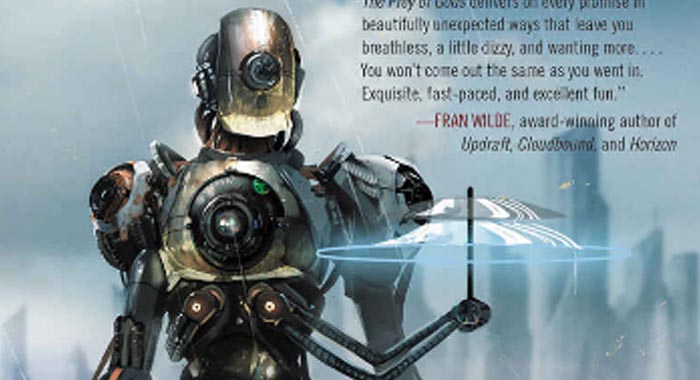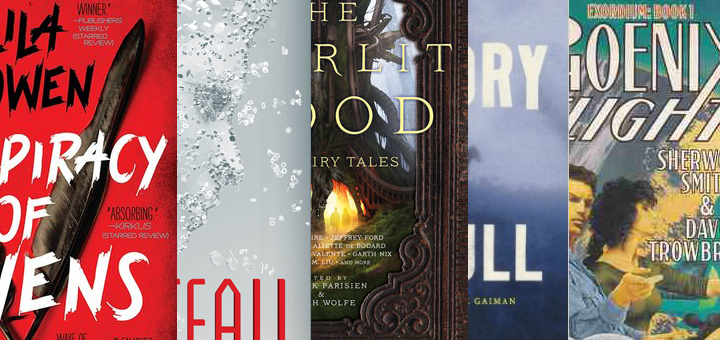Trans. Sian Reynolds
ISBN: 9780099469551 ; Guardian Review ; Michael’s Musings ; My tragic right hip
‘Pierre, something’s wrong with the garden,’ said Sophia.
She opened the window and examined the patch of ground. She knew it by heart, every blade of grass. What she saw sent a shiver down her spine.
 The first Vargas book I read was Seeking Whom He May Devour, which I loved, and the reason I picked it up was because I liked the cover, well, this one doesn’t have quite such a gripping cover, but it really did grow on me. It is quite simple, just a tree picked out by a shaft of light in a garden, everything else is half hidden in the darkness. It really suits the story.
The first Vargas book I read was Seeking Whom He May Devour, which I loved, and the reason I picked it up was because I liked the cover, well, this one doesn’t have quite such a gripping cover, but it really did grow on me. It is quite simple, just a tree picked out by a shaft of light in a garden, everything else is half hidden in the darkness. It really suits the story.
As I’ve mentioned before characters are what make, or break, a book for me. And this book has great, if slightly odd, stars. Eccentric is probably the polite term.
Sophia, the first character we meet used to be an opera singer. Not among the top-notch singers, but a lot better than halfway decent. She lives in Paris with her husband, Pierre, when one morning she wakes to find a tree planted in her back garden. She is intrigued, puzzled and a little scared by this. Who would have done such a thing? And why. Pierre isn’t too bothered by this sudden arrival of a plant, thinking perhaps it is a present from an old fan.
Pierre despised the fans who had come before him and the ones who had come after him, in other words, all of them.
Sophia doesn’t think this likely and can’t stop thinking about the tree and what possible reason someone could have for planting it in the middle of the night in her garden. When she sees a young man viewing the tumbledown disgrace of a house next door she asks him if he can identify it. It is a beech tree. What possible meaning could a beech tree have?
This young man, Marc, is a down on his luck historian. And because he has little money and few job prospects as a Medieval historian he agrees to rent the house next to Sophia’s. It is cheap, because of the state it is in, but even so, Marc cannot afford the rent by himself. And so, against his better judgment he asks in two fellow historians, but these other historians are not really to Marc’s taste. Neither is interested in the Middle Ages. One, Mathias, Marc liked a lot but the problem is that he is a specialist on prehistoric man.
As far as Marc was concerned, once you’d said that, you’d said it all.
The other, Lucien, works on the Great War, a contemporary historian.
Despite this gulf in interests the three get on quite well, and together with Vandoosler, an ex-cop and Marc’s godfather they move into the ‘disgrace’ and so meet Sophia. She calls around, still worried about the tree, and although they have never met, almost at once they begin to understand her fear; perhaps there is a body hidden under the beech tree.
I won’t bother describing anymore of the plot details, because I don’t want to give away too much of the mystery, but also, because while it is an enjoyable and entertaining story it was the characters that kept me reading. The characters and the writing. Vargas has a great, easy to read, style that is full of humour. It keeps you turning pages, not necessarily to find out what will happen, but to find out more about her quirky (in a good) way characters.
Obviously in a translated work I can’t be too sure of the original but translator Sian Reynolds has a great turn of phrase, and there are plenty of wonderful passages to enjoy.
His thoughts were in a whirl, clashing or diverging. Like the plates that move along on top of the hot heaving magma underneath, the molten mantle of the earth. It’s a scary thought, those plates sliding in all directions over the earth, unable to stay put. Tectonic plates, they’re called. Well, he was having tectonic thoughts. The thoughts were sliding about inside his head and sometimes, inevitably, the clashed. With the usual sodding consequences.
As for the reason for the title, well Vandoosler takes to calling his house mates after the three evangelists; St. Matthew, St. Mark and St. Luke.




You should read Have Mercy on Us All. Her best one so far, I think – especially as the translators seem to have done a good job each time.
I think I have, is that the one about the plague? If so I didn't like it as much as the other two, still good though.
Although, if I reread it it might be better considering that the three evangelists show up in it, if I'm thinking of the right book of course.